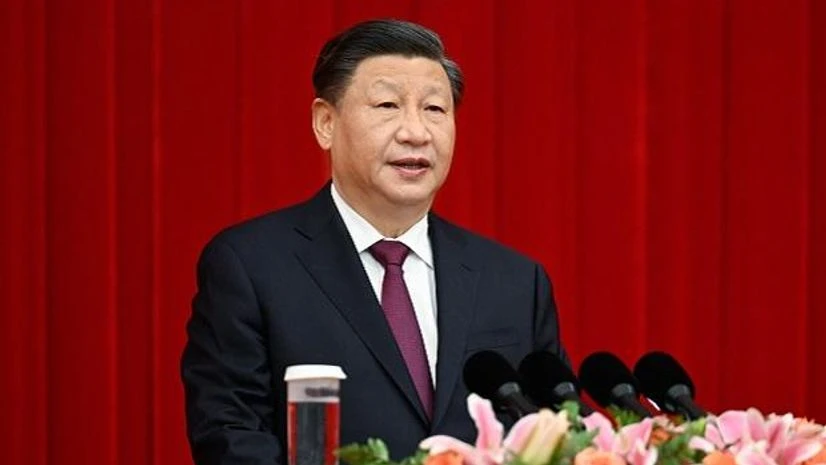Chinese leader Xi Jinping is due to meet Vladimir Putin in Moscow in a political boost for the isolated Russian president after the International Criminal Court charged him with war crimes in Ukraine.
Xi's government gave no details of what the Chinese leader hoped to accomplish.
Xi and Putin declared they had a no limits friendship before last February's attack on Ukraine, but China has tried to portray itself as neutral. Beijing called last month for a cease-fire, but Washington said that would ratify the Kremlin's battlefield gains.
The Chinese government said Xi would visit Moscow from Monday to Wednesday but gave no indication when he departed. The Russian government said Xi was due to arrive at midday and meet later with Putin.
China looks to Russia as a source of oil and gas for its energy-hungry economy and a partner in opposing what both see as American domination of global affairs.
The meeting gives Putin and Xi a chance to show they have powerful partners at a time of strained relations with Washington, said Joseph Torigian, an expert in Chinese-Russian relations at American University in Washington.
More From This Section
China can signal that it could even do more to help Russia, and that if relations with the United States continue to deteriorate, they could do a lot more to enable Russia and help Russia in its war against Ukraine, Torigian said.
Beijing's relations with Washington, Europe and its neighbors are strained by disputes over technology, security, human rights and the ruling Communist Party's treatment of Hong Kong and Muslim minorities.
Some commentators have point to a possible parallel between Russia's claims to Ukraine territory and Beijing's claim to Taiwan. The Communist Party says the self-ruled island democracy, which split with China in 1949 after a civil war, is obliged to unite with the mainland, by force if necessary. Xi's government has been stepping up efforts to intimidate the island by flying fighter jets nearby and firing missiles into the sea.
China has stepped up purchases of Russian oil and gas, helping to top up the Kremlin's revenue in the face of Western sanctions. Beijing appears largely to have complied with U.S. warnings not to give military support.
This week's meeting follows the ICC announcement Friday of charges that Putin is personally responsible for the abductions of thousands of children from Ukraine.
Governments that recognize the court's jurisdiction would be obligated to arrest Putin if he visits. Putin has yet to comment on the announcement, but the Kremlin rejected the move as outrageous and unacceptable.
In a show of defiance, Putin over the weekend visited Crimea and the occupied Ukrainian port city of Mariupol to mark the ninth anniversary of Russia's seizure of the Crimean peninsula from Ukraine. Russian news reports showed him chatting with Mariupol residents and visiting an art school and a children's center in Sevastopol in Crimea.
Xi said in an article published Monday in the Russian newspaper Russian Gazette that China has actively promoted peace talks but announced no initiatives.
My upcoming visit to Russia will be a journey of friendship, cooperation and peace, Xi wrote, according to text released by the official Xinhua News Agency.
A reasonable way to resolve the crisis can be found if all parties embrace the vision of common, comprehensive, cooperative and sustainable security, Xi wrote.
The trip follows the surprise announcement of a diplomatic thaw between Iran and Saudi Arabia following a meeting in Beijing, a diplomatic coup for Xi's government.
Xi wants to be seen as a global statesman who is playing a constructive role by talking about peace but is unlikely to press Putin to end the war, said Torigian.
Beijing is worried about potential Russian losses on the battlefield but doesn't want to be seen to enable Russia's aggression, said Torigian.
They won't spend political capital on pressing Moscow to make peace, especially if they don't think it will get them anything, he said.
(Only the headline and picture of this report may have been reworked by the Business Standard staff; the rest of the content is auto-generated from a syndicated feed.)

)
